Welcome Back!
Welcome back after the summer holiday. We hope you had a happy and healthy summer. It has been great to see so many happy faces back in school. The children have settled really well in their first week and are adapting to new routines, classrooms, teachers and an earlier start time of 8:45am.
This week, we have sent the children home with a reading book and a new reading record book. It is really beneficial that your child reads at home daily – it improves fluency and increases the enjoyment of reading. The children can record what they’ve read at home in the reading records. We will also set a task for them to complete at home. Please ask your child what their task is for their homework and actively encourage them to think about the presentation of their work in the journals and the importance of neat handwriting and accurate use of punctuation.
Thank you to all the children who have come to school in the correct uniform and PE kits this week. If you are unsure of the uniform, please click the link to see what is required.
Important Dates
PE – Monday and Wednesday
Spelling test – Friday
Library – Wednesday
Class assembly – Wednesday 22nd November 2023 & Wednesday 21st February 2024
We are looking forward to a successful year!
A brilliant first week!
Well done everybody! We have had a fantastic first week in Year 1! The children have been amazing settling in and have really impressed both Mrs Roth and myself with their brilliant attitude and learning.
We look forward to meeting you over the next few weeks but for now, here is some key information about Year 1.
Important days and dates
PE – Monday and Thursday
Spelling test – Friday
Library – Friday
Class assembly – Wednesday 25th October at 2:40pm
Water bottles
These should be brought to school daily and they will be brought home every day for refreshing and cleaning.
Homework/Spellings
Whole school homework is set every Friday (along with new spellings). Homework and spellings can also be accessed from the website.
Reading
In Year 1, we will continue using e-books for our reading practice. Your child will bring home a log-in for the e-book website. Please log out of last year’s account and log in with the new account. This will ensure any new books are in the account.
Numbots
We continue to use Numbots in Year 1 (using the same login as reception) and certificates will be awarded every Friday for children who complete the different stages.
For spelling practice, reading and Numbots, little and often (10/15 minutes a day) is recommended.
Uniform
Please do check the uniform policy to ensure your child is wearing the correct items including for PE days. Earrings must be removed on PE days.
Finally, please do ask if there are any queries and keep checking back on class news to find out more about your child’s learning!
Reading Records!
Reading Records
This week, Year 3 will be sent home with their new and exciting reading records! These records are to help me (Miss Birch) keep track of the children’s reading progress.
The new reading records key info:
- Each time one of the children signs out a new book to read from the library, they can make note of these in the book and rate them out of 5 stars.
- I’ll choose an activity for the whole class to complete on their chosen book each Friday. More information on these activities are inside the record.
- The children will need to bring in these reading records every Friday for our Book Club lesson where we’ll discuss their books and develop their love of reading.
- The children’s grown-ups will also need to write a short comment sharing with us the lovely reading their child has been doing at home.
- It gives the children ownership and responsibility of their reading!
I hope this is all clear and I’m really looking forward to seeing their progress.
Any questions, please ask!
Welcome back!
A very warm welcome from me, Miss Wilson!
I hope you had a happy and healthy summer. It’s been a pleasure seeing the class again and fab to get properly stuck in to Y6.
Here’s some important days to note down:
- Book Club will be on Mondays so please bring your signed Reading Record in then.
- Our library slot is every Tuesday.
- PE will happen on Tuesdays and Thursdays.
- Our first class assembly is on 29 November.
My door is always open should you have any questions, comments or concerns. I’m really looking forward to the year ahead!
Miss Wilson
Year 3 PE and Swimming
Hello!
Year 3 are swimming on Wednesdays this year. This will begin in the second week back on the 13th of September.
For swimming, your child will need to come to school in their PE kit and with these things ready in a bag:
- a swimming outfit
- a towel
- a healthy snack for afterwards e.g. fruit or vegetables
- goggles if needed!
Our other day for PE will be Thursdays. Please could your child come to school wearing their PE kit on this day too! If you’re not sure on the PE kit, please let me know and I can give you the school’s uniform policy.
Thank you!
Miss Birch
Looking forward to a new year!
Hello Year 3!
As you know, I’m Miss Birch and I’m going to be your teacher for the next year! I’m really looking forward to working with all of you. I hope you’ve all had a wonderful summer holiday and are raring to come back. I just know that we’re going to be a fabulous team – bring it on!
A fun-filled last week!
It has been a jam packed week in Year 3!
A highlight was definitely our school trip to Magna. The children loved exploring the four different pavilions: air, wind, fire and earth. A class favourite was definitely seeing the fire tornado!
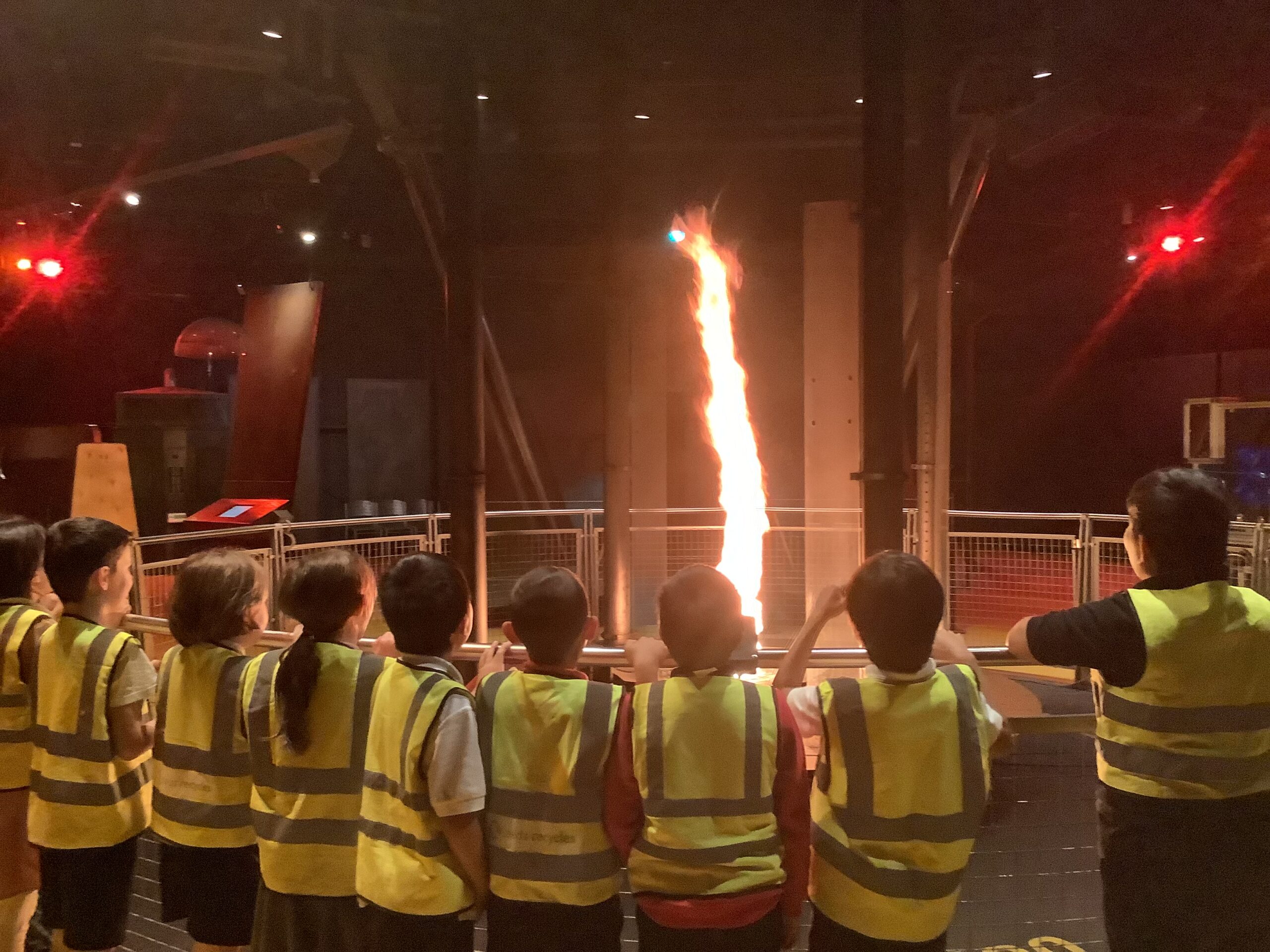


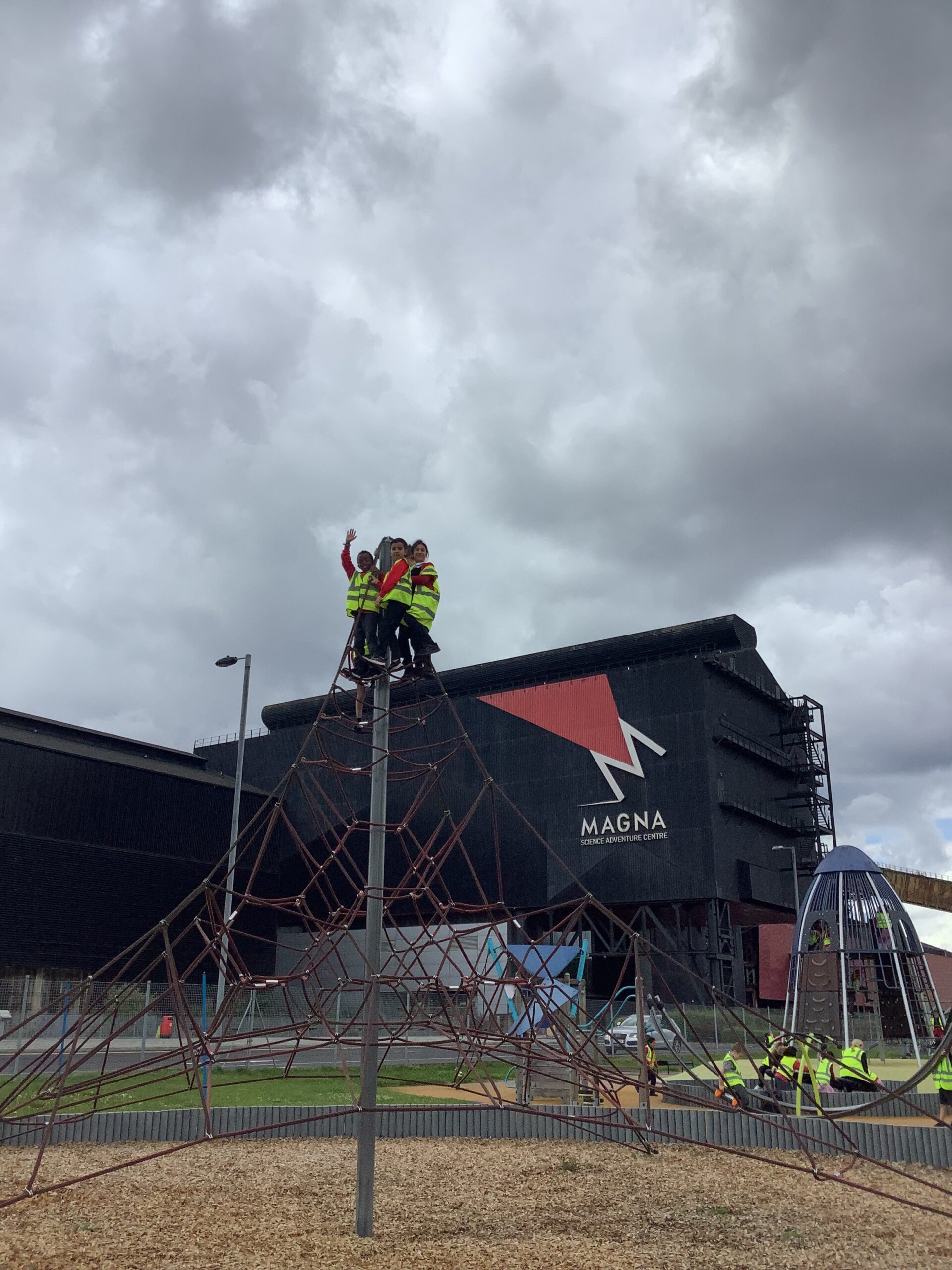
We finished our go-karts and tested them in the hall. They all moved freely which met our design criteria.

Today, we propagated our much loved Swiss Cheese plant. We have placed our cutting in some water and hope that some roots have grown by the time we come back in September!

On behalf of Mrs Burgess, Mrs Maqbool and myself, thank you for a great year. Thank you all very much for our lovely gifts – we feel spoilt!
Have a great summer and see you in September!
A SMASHING masterpiece!
Yesterday, the children finished off their Eggy’s cars. They added safety features like seat belts, crumple zones and a roll cage. Take a look at their fabulous work!
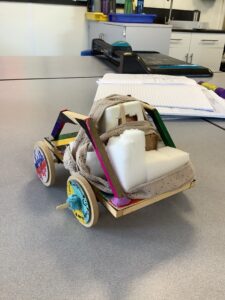
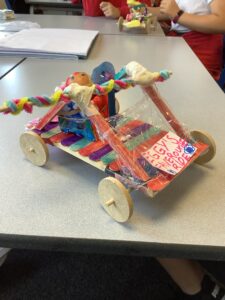
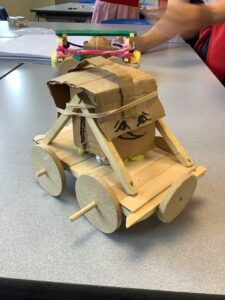
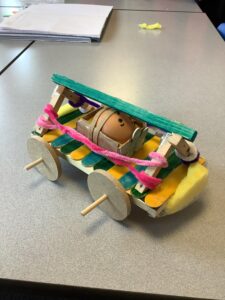
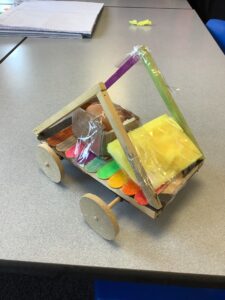
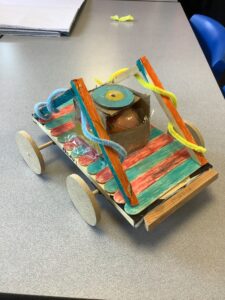
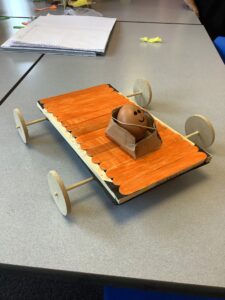
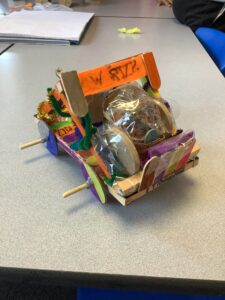
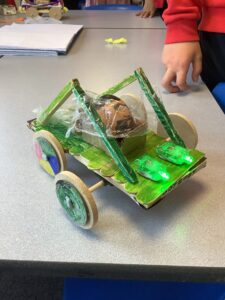
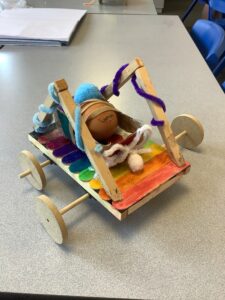
To complete our DT project, the children then had to test their cars against the design brief. We completed three tests:
- if it was moveable (roll test);
- if it would protect Eggy when the vehicle crashed (crash test);
- and if it was driveable day and night (headlight test).
For the crash test, the children pushed their cars down a ramp into a wall to see if Eggy would still be in intact. Take a look at our SMASHING experiment!
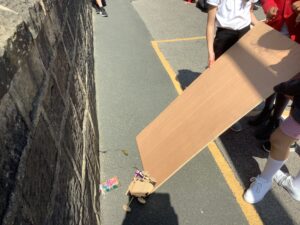
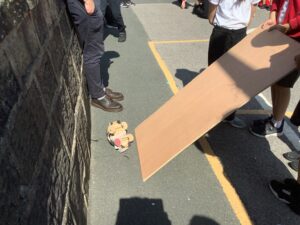
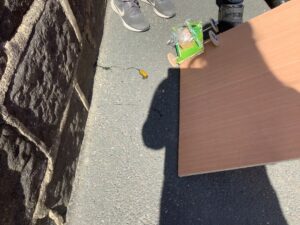
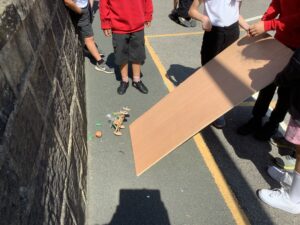
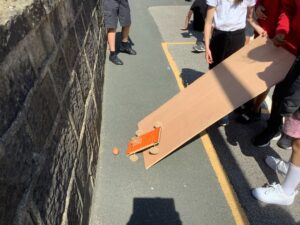
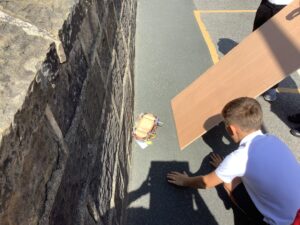
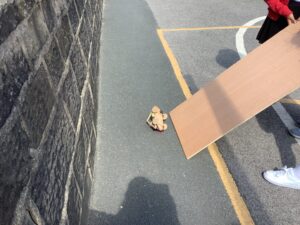
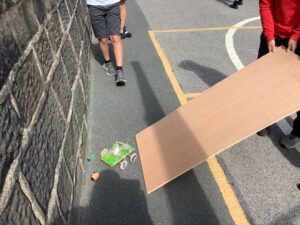
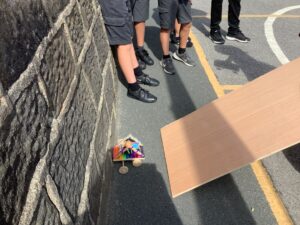
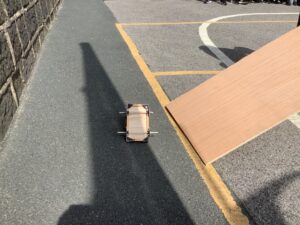
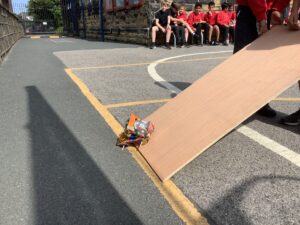
Lego Legends
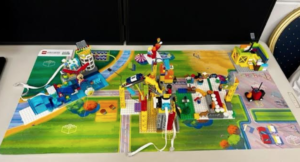
 On 07 July, some of our Y2 children took part in a STEM festival, where they presented a model that they’d prepared as a team. They were all prepared, a bit nervous, but they answered questions from the judges really well and were very passionate about their creation.
On 07 July, some of our Y2 children took part in a STEM festival, where they presented a model that they’d prepared as a team. They were all prepared, a bit nervous, but they answered questions from the judges really well and were very passionate about their creation.
 They discussed lots of interesting issues including: sources of renewable energy; storage facilities for energy; and many more technical matters! The judges were very impressed with their creations and ideas. Their model even included a motorised element which included coding on an iPad – very impressive.
They discussed lots of interesting issues including: sources of renewable energy; storage facilities for energy; and many more technical matters! The judges were very impressed with their creations and ideas. Their model even included a motorised element which included coding on an iPad – very impressive.
Thank you to the parents who were involved and who organised it.
Being Healthy Week!
This week has been full of fun and informative activities all about the topic of ‘Being Healthy’.
On Monday, we had a visit from D:Side Dave, who talked about the risks of smoking and vaping, especially the impacts on children. We also had an orienteering session where the children had to find hidden photos and numbers around the school.






On Tuesday, the children had an assembly about physical activity and how important it is. The main message was ’60 minutes of exercise every day’. This doesn’t need to be all in one go but can be broken down in to smaller chunks of time. We also took part in a bike maintenance workshop.


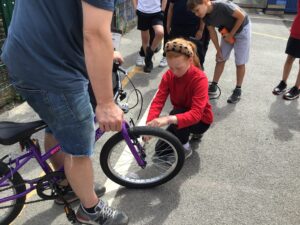
On Wednesday, we had an assembly on healthy eating. We then went to Allerton Grange to take part in a PE lesson.







After that, we had a skipping session with the Skipping School and showcased our skills to the rest of the school.





On Thursday, we had our sports day. On Friday, we finished the week with a talk about promoting good health and a martial arts workshop.


